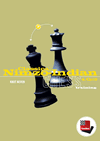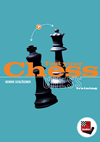 |
ChessBase Reviews |
Last updated 17 October 2005

| index |
CDs, DVDs, Software Part 23

Classical Nimzo-Indian 4.Qc2 By Knut Neven
As the title says this CD concentrates on the 4.Qc2 variation of the Classical Nimzo-Indian Defence. This variation seems to have grown in popularity recently with the likes of Kasparov, Sokolov and Seirawan playing it.
The CD has a large DataBase of 22,891 games, of which approximately 1000 are annotated, which should prove more than adequate for most correspondence players.
Knut Neven has produced an easily comprehensible database with 24 texts and 478 selected and mainly annotated games. After an introduction and a history of the system and opening, there comes a specially interesting text about typical motifs which crop up in the Classical System: the advantage of the bishop pair, the placement of the minor pieces, recurring tactical motifs, key pawn structures and pressure against c4 are themes which the author explains and provides with links to sample games. Then there comes the opening theory of the Classical System in 18 chapters. The CD is rounded off with a training database and an extensive opening tree, generated from all the games. All the data on the CD can be accessed with a reader based on ChessBase 9.0.

Squares Strategy Vol. 3 Middlegame By Alexander Bangiev
The Bangiev method of thinking is a strategy based on squares. Before every move, it therefore checks the constellation of pieces against quite specific pre-determined criteria. What it encourages is not your memory but your thinking: learn to understand the logic of the game by means of a few rules! It always the same restricted number of questions which you have to ask yourself and to answer at whatever stage of the game.
Once you have understood the principle, you can have the pleasure of discovering that, with a little practice, you are always able to find the best move. You can check your progress with grandmaster games, because grandmasters apply the correct thought processes without even being aware of it! The third CD, which is based on Bangiev‘s new method of training, is dedicated to the middlegame. There is a 'Learning' database in which the new method of training is presented in 20 introductory texts and 131 annotated game fragments. In a second database there are then 69 game fragments by means of which you can put into practice what you have learned. The ChessBase Reader based on ChessBase 9 is included.

Test Your Chess By Henrik Schlössner
This is one of those CDs which you can enjoy for years. The CD basically has 555 test positions to help you develop your skills. The problems are not as easy as you might think. The CD is divided into 6 sections where you have to decide if and why you can win, and how to win from the given position. You are given a hint in that each position has a multiple choice answer but beware the first answer that pops into you mind might not be the best one and the time pressure can lead to errors but should sharpen up you positional awareness. The 6 sections cover the following themes:
|
|
All in all an enjoyable training aid.
Due out at the end of October - Fritz 9. Some of the new items include:
- Position explainer : positional comment about the current position.
- New forms of training for the topics attack, check and defence with high-score rating.
- New handicap-function for practical training of positional play.
I’m looking forward to letting you know how it all looks and feels next time out.